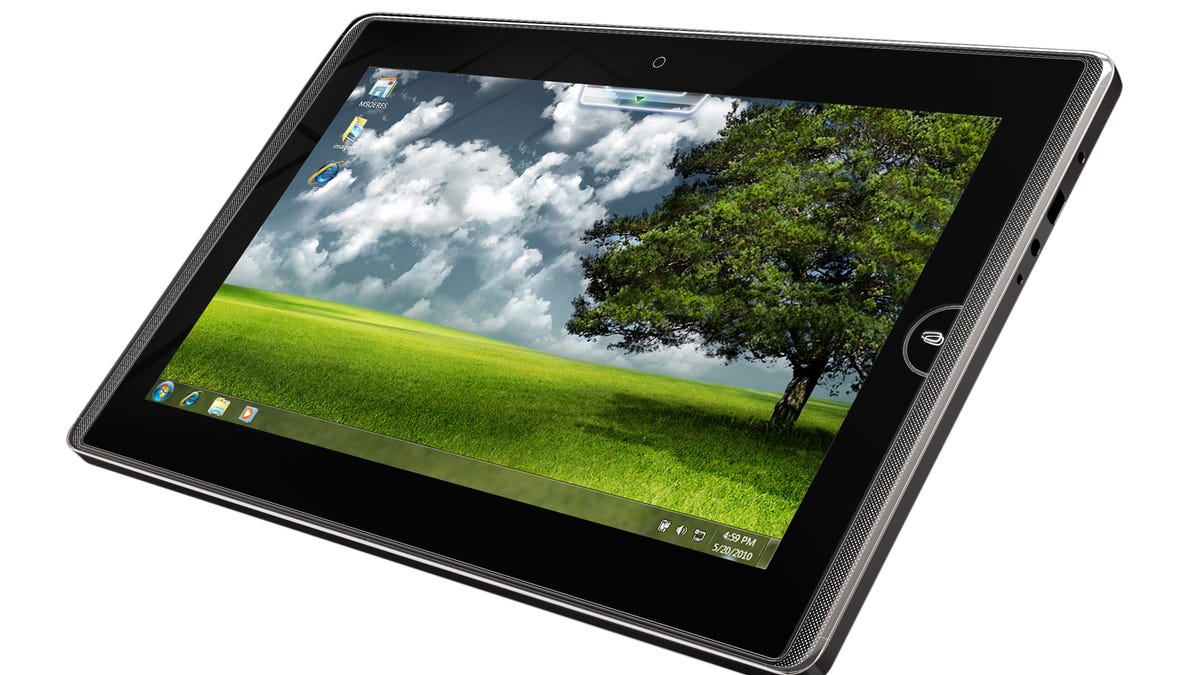Can Asus take on iPad with Eee Pad, Eee Tablet?
It wasn't exactly a surprise that Asus announced its latest touch-screen tablet offerings Monday morning at Computex 2010 in Taipei, Taiwan. What was surprising to some is that the company is splitting its slate-style PCs into two distinct brands.

It wasn't exactly a surprise that Asus announced its latest touch-screen tablet offerings Monday morning at Computex 2010 in Taipei, Taiwan. What was surprising to some is that the company is splitting its slate-style devices into two distinct brands.
First is the Eee Pad. Asus says it's "an ultraslim and light yet high-performance slate device designed to provide users with a real-time cloud-computing experience." A 12-inch version, called the Eee Pad EP121, is basically a keyboard-less laptop, with an Intel Core 2 Duo ULV processor and Windows 7. On paper, at least, that makes it much more powerful than just about any other tablet we've seen.
There's also going to be a 10-inch version of the Eee Pad. Known as the EP101TC, it instead uses something called Windows Embedded Compact 7, but its CPU remains unclear at the moment. Both are being targeted at users of cloud-computing apps.
Separate from that, Asus also announced a more traditional e-book reader called the Eee Tablet, which emphasizes note-taking and annotation. The company describes it as "one of the world's most accurate and sensitive digital note taking devices, [that] gives the user the feel of writing on paper."
Asus is positioning the Eee Tablet as more of a hybrid e-book/entertainment device, as it can play media files (the exact formats and file types are not yet known) and also includes a 2MP Webcam, something you won't find on other e-book readers. As seen in the image above, the Eee Tablet also makes use of a stylus--something largely missing from the current generation of tablet devices.
As with anything from Asus, the actual U.S. availability, price, or release date remain up in the air.
Is Asus doing the smart thing breaking tablet and e-book functions into separate devices? Is there any way a Windows 7 tablet--even one with a Core 2 Duo processor--can operate in a smooth and satisfying manner (recent history says it's a challenging task). We'd normally be dubious, but Asus is known for often delivering on its forward-looking promises.
Sound off in the comments section below and let us know if you think the Asus Eee Pad and Eee Tablet are serious threats to the Apple's iPad, Amazon's Kindle, or HP's still-unreleased slate device.

